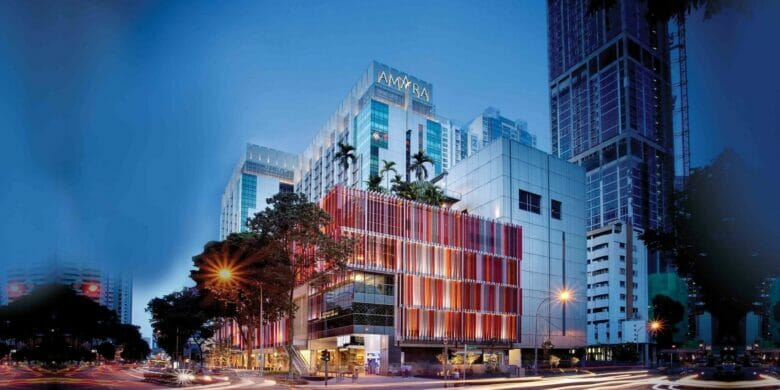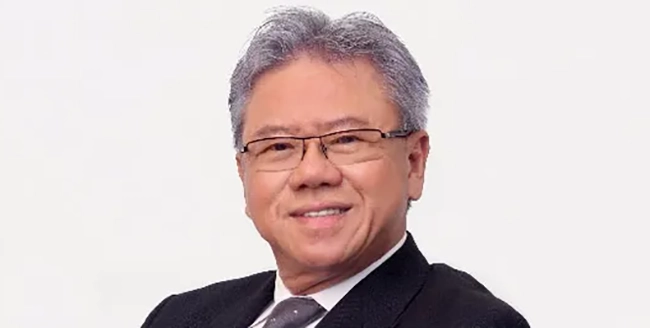
The company’s flagship property is the Amara Singapore hotel in Tanjong Pagar. (Source: Amara Hotel)
Amara Holdings said on Monday that it is in talks with its controlling shareholders regarding a potential deal, with analysts speculating that the SGX-listed hotel owner and operator could be Singapore’s latest buyout target.
Amara, which saw its stock skyrocket this month despite declining earnings, said on Sunday that the Teo family that controls the company is currently engaged in “confidential discussions with a third party in relation to a possible transaction involving the company.”
The talks, led by the firm’s executive directors, Albert Teo Hock Chuan and his sister Susan Teo Geok Tin, may or may not lead to an offer for the shares of the company according to the disclosure. According to an appendix to the company’s latest annual report, Albert Teo controls 36.57 percent of the company, while his sister controls 36.36 percent. Other family members also have stakes in the company. Shares in Amara have jumped by nearly 30 percent during the month of June despite weak earnings last year.
The buyout deal would make Amara, which holds a portfolio of hotels, malls, restaurants and residential projects around Asia, the fourth major real estate company to become the target of a buyout offer so far this year, families controlling small- to mid-cap firms look to delist in the face of low liquidity and poor trading valuations, according to Vijay Natarajan, property and REIT analyst at RHB Bank Singapore.
Profit Down 25% in 2022
Amara said Albert Teo, who is also its chief executive officer, and Susan Teo, the company secretary, formally notified the board on Saturday about the possible transaction although there is no guarantee that the firm will enter into any definitive agreements or that any transaction will materialise.

Amara CEO Albert Teo
The firm said the talks may explain a 22 percent surge in its stock last week, with shares in the company closing at S$0.44 each on Friday – up from S$0.36 apiece on Wednesday. After a halt in trading on Monday, Amara’s shares rose another 14 percent on Tuesday to close at S$0.50 after the announcement.
Albert Teo, who spearheaded Amara’s expansion from construction and property development into hotels four decades ago, together with his siblings Susan Teo and Teo Kwee Chuan, were the top three substantial shareholders in the company.
Amara saw its net profit attributable to shareholders drop 25 percent to S$6.45 million last year from S$7.55 million in 2021, after higher operating and finance costs outstripped a 40 percent jump in revenues during the same period.3
Singapore and Bangkok were the group’s main revenue drivers last year with its home city contributing 82 percent of total revenues, while operations remained hampered in Shanghai where COVID-19 lockdowns remained in place until January this year.
“We are optimistic that domestic and international tourism in Shanghai will prosper in 2023, barring any unforeseen circumstances,” the firm said in a separate disclosure in April.
Aside from its aging flagship hotel in downtown Singapore, Amara’s hospitality portfolio also includes the 140-room Amara Sanctuary Resort in Sentosa as well as the 250-key Amara Bangkok hotel along the Thai capital’s Surawong Road. In China, the firm owns and operates the Amara Signature Shanghai as part of a mixed-use hotel, retail and office development in Putuo district.
Privatisation Trend Continues
RHB’s Natarajan said the rash of delistings from the SGX, which include Gordon and Celine Tang’s buyout of Chip Eng Seng in February and a privatisation offer for Boustead Projects first announced in February, may no longer be working for some small- to mid-cap property firms, some of which are trading at as much as 40 to 70 percent below their book values.
“In addition, many of these counters are family-owned or controlled by key majority shareholders and do not see the need to tap into the markets for equity thus making it easier to take the privatisation route,” Natarajan said on Tuesday.
The veteran analyst said the current weak investment sentiment as well as proposed amendments to the Companies Act, which received approval from the Ministry of Finance in February, that would make it harder for substantial shareholders to compel small investors to sell their holdings in buyout attempts, could further accelerate flight from the SGX.
In February, mainland investors Gordon and Celine Tang have also obtained the valid acceptances needed to take Chip Eng Seng private in an all-cash deal valuing the company at S$589 million. The firm is now all set to delist from the SGX.
Boustead Projects is also in the process of delisting after losing its free float in March with parent company Boustead Singapore required to complete the process this month. First proposed in February, that offer was accepted by the required 90.69 percentage of shareholders on 17 March.
In April, the Ong family that controls Lian Beng Group launched a buyout offer to take the property firm private at S$0.62 per share in cash, which was raised to S$0.68 apiece the following month. The closing date for the deal, which values the company at S$309.8 million, was recently extended to 30 June.
“We believe the key for companies to remain successfully listed in the market is by engaging investors and all stakeholders in the business actively and have a good long-term strategy that is clearly communicated to the shareholders,” RHB’s Natarajan said.
Leave a Reply